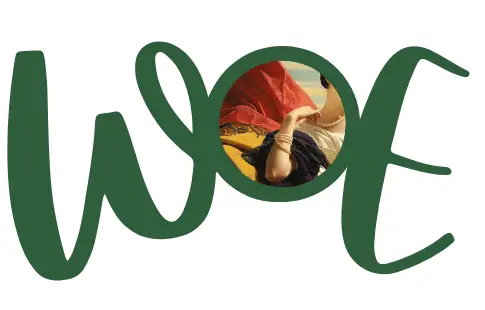July 26, 2021
Mahmoud Mansi
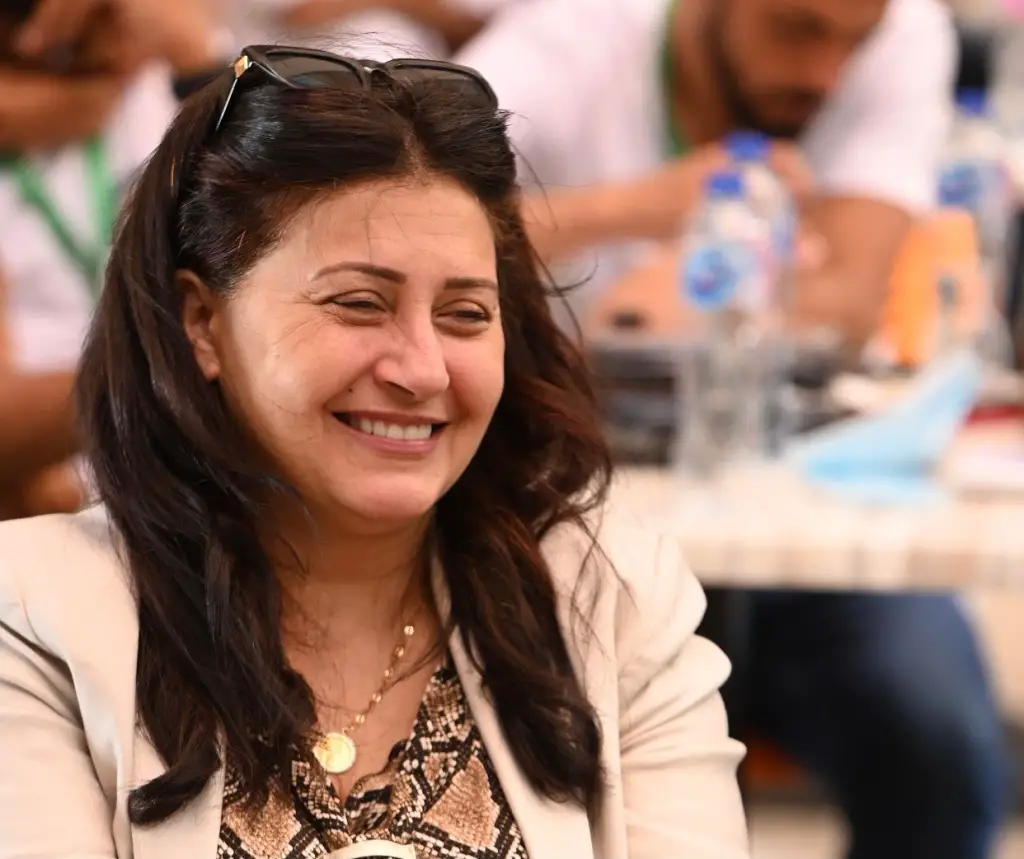
Hanan Gouda, PhD, is the Dean of the Arab Institute for Leadership Development (AILD) at the Arab Academy for Science, Technology and Maritime Transport (AASTMT), and an associate professor at the College of Management and Technology.
A leader in several fields including academic research, education, government and community social responsibility and a former advisor to Egypt’s minister of education. She is the general supervisor of Egypt’s National Youth Strategy, formed by The Arab Institute for Leadership Development, AASTMT, Ministry of Youth and Sports and UNFPA.
She was honored by Egypt’s Naval Forces and the Armed Forces Training Unit. She has over 20 publications that focus on behavioral sciences covering various field including leadership; training in the workplace; the impact of conflicts in the institutions; Generation Y; intercultural management; internationalization; and youth and women development.
WoE: How did you start the path to become an advisor to several ministries, and a supervisor of Egypt’s National Youth Strategy?
Hanan Gouda: Through my work at AASTMT, I got the opportunity to meet Mahmoud Abo El Nasr, Former Minister of Education and Technical Education, while I was presenting a project about the development of education. As my research included remarkable studies about the educational management, her asked the president of AASTMT, Ismail Abdel Ghafar, if I would join the ministry for a year to lead the Quality and Development sector.
Regarding Egypt’s National Youth Strategy, as my recent studies and researches focused on youth skills and their development for the new labor market, the minister of youth and sports asked me in 2019 to lead a team of members from the ministry and UNFPA, to plan, survey, and analyze the current situation of youth in Egypt, with the support of my team in the Arab Institute for Leadership Development (AILD). Hence, the Arab Academy became an official partner in the formulation of Egypt’s future youth.
WoE: How does Egypt’s National Youth Strategy corresponds to women empowerment and gender equality?
HG: In the first phase of the strategy formulation, we surveyed all global successful strategies for youth and the sustainable development goals for the UN which included women empowerment.
There are eight pillars for the National Youth Strategy and each reflects on women empowerment from a different angel, including entrepreneurship; volunteering; learning skills; etc. However the most important pillar from my perspective is the citizenship, political and International participation, because it provides a more holistic empowerment to young women.
We have facilitated workshops all over Egypt to brainstorm face to face with the youth. We have gathered points of views, needs, priorities, and started creating solutions. Through these workshops I was not only supervising and analyzing, but I have also facilitated some sessions. I have noticed that young women are not shy to speak up their opinions and stand for their points of view They are all active members in their community whether in sports, volunteering or work. They are ambitious to study and travel. However some require further support and approval from their parents, as to increase awareness regarding supporting young women.
WoE: You spent seven years studying and working in France. What were the challenges you faced as an Egyptian woman working and studying abroad? What did you learn most from this experience?
HG: Studying abroad is a challenge for everyone, especially for a mother with two daughters. But as a foreigner in France my challenge wasn’t being Egyptian. because I had a solid French cultural background and I had mastered French in school. The real challenge was to balance between personal and professional success. Those seven years were best experience ever adding to my personality and experience, I learnt to be goal oriented, to accept others, to be my self and respect my own culture and beliefs. And most importantly to be a representable figure for my country.
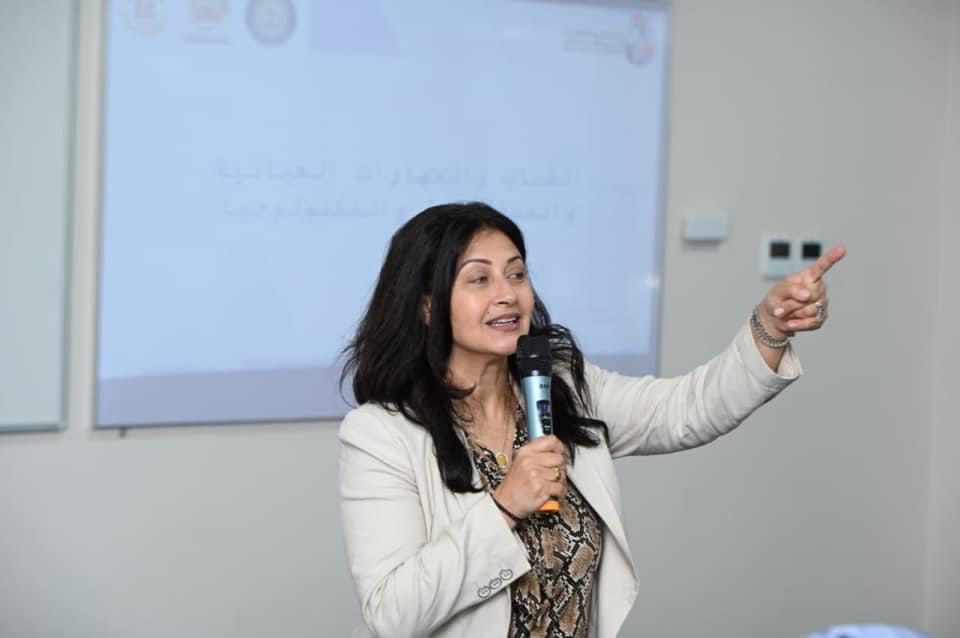
WoE: You have published several academic papers related to gender equality, women empowerment, diversity and engagement at the workplace. In a nutshell what is your advice for organizations to empower their female leaders and youth?
HG: I have a lot of advices for youth and women. Education and skills are vital for leadership, but what kind of learning we are talking about? I will refer to my recent research concerning the “lifelong learning” and the “importance of skills for the future”. Therefore in a nutshell the focus should be on developing youth according to the future skills and market.
On one hand, higher education organizations should focus on the skills required for each job to reinstall digital and personal skills as companies search for graduates who are able to develop the workplace.
As in the corporate companies the required tasks from employees have been changing especially in the near future, in addition to the COVID-19 impact. Employers on the other hand should reskill and upskill their employees, empower them through training to allow them to face the new requirement of labor market. These skills include: knowledge acquisition, problem solving, analysis, creativity and innovation, entrepreneurship, and technical and personal skills.
At the end, I would like to highlight the importance of motivation throughout this development process.
WoE: How is the academic research vital for sustaining gender equality and women empowerment worldwide?
HG: The academic research is a tool for investigating and exploring the situation of gender including both its problems and aspirations, based on the community where they live in. During the research journey it is important to define the objectives aiming at finding solutions and possible plans for interventions, so we can therefore interfere with a successful plan from a practical point of view. Academic research is the arm of any possible change for the future.
WoE: Many successful people like to practice some sort of meditation to restore their energy and keep focused on their goals in life. We are curious to know more about your own style of meditation?
HG: I like to give myself time to reflect on things, plan ahead, restore my passion and be grateful to all what I have been through. I try to do that on a daily basis through different means, but mostly I love walking in the streets of Alexandria. I also love to give myself time to read more, maybe sometimes sit in silence and get closer to my beliefs and faith, because I believe that faith is the source of everything and it is the key that can restore our energy.
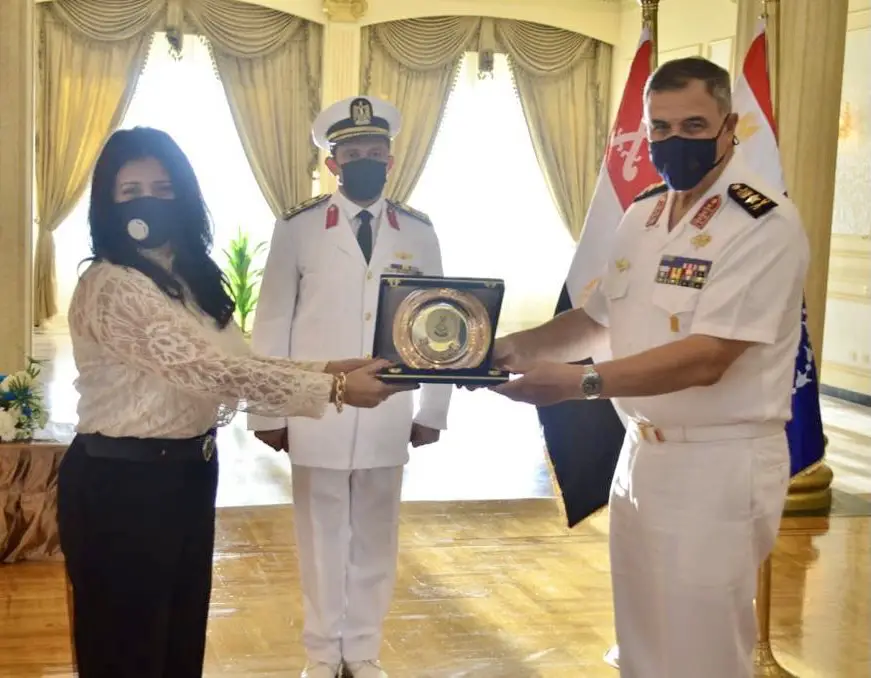
WoE: Recently you launched the first round of the “Gender and Governance Diploma” with AILD and the Arab Women Organization. Can you tell us more about that and why gender studies are important for women and men in different careers?
HG: We launched the Gender of Governance Diploma with the Arab Women Organization in order to promote the situation of women in the Arab World and offer practical solutions towards gender equality and sustainability, in correspondence to the recent presidential direction towards Women’s Rights. The diploma contains vital subjects such as, gender and sustainable development, women and development challenges in the Arab world and worldwide, women and leadership development, gender and social policy, globalization and its effects on women issues… etc.
The diploma is aimed to tackle women leadership from different angles such as economic, social and professional ones. The diploma is also designed for me.
Introducing professional gender diplomas and certifications is essential for today’s workplace, as employers now are seeking leaders who value diversity and equality, who are able to understand the power of gender equity in corporate and its impact on economy.
If anyone is interested about knowing more about the diploma you can refer to the following link:
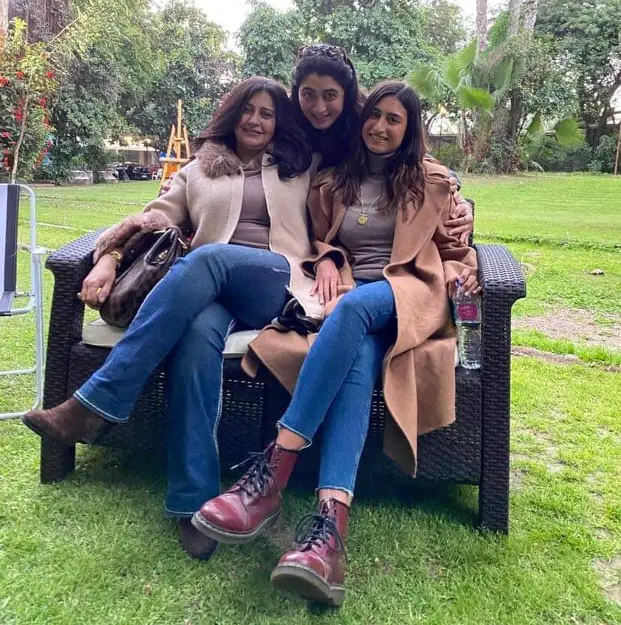
WoE: Women go through several phases in their lives, and each builds up their personalities. As a mother of two daughters and a grandmother, can you share with us how did you evolve as a person from the various phases in your life?
HG: As a woman, each phase in our lives we might pursue a different passion and have different goals, but all of these goals throughout our lifetime create our path, although some passions and goals might follow us till the very end, like for example my passion for learning, creating new projects, and being lucky to witness the impact of this work on others.
I became a mother at the age of 27, I believe I was ready to handle this new adventure and responsibility in life. My daughters became my main priority, and during the very first years my research and studies were my second priority. Then afterwards I was able to create a balance. My daughters now are my best friends, they are my motivation and they support me as much as I support them. As for being a grandmother, it is wonderful feeling, a new kind of joy and happiness and my granddaughter is a gift from God.
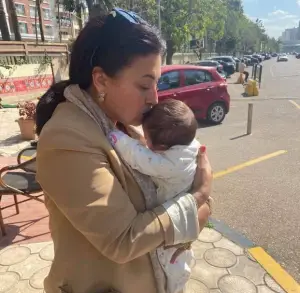
WoE: How did you raise your daughters to become empowered women in the society?
HG: I raised them to become independent young women, but at the same time I made them feel I was always there for them whatever happens. How do you define independence is what differentiates one woman from the other. For me being an independent woman means, one who has the freedom and ability to make her own choices, yet at the same time she doesn’t become self-centered or isolated from the ones around her.
When I was in France I took my two daughters to a stable and stayed there for a couple of weeks. The aim was not only to learn how to ride a horse, but also to learn how to take care of the horses from A to Z, to feed and bathe them. They took full responsibility of their horses during the training period. Activities and lessons like these build up the personality of our children and it becomes part of their functioning throughout their lives whether on the short or long term.
WoE: As a leadership specialist and from your perspective and experience, what life advice would you give to women, in order to take the lead of their own lives?
HG: People usually say “don’t look back”, I would love to rephrase and advice people to look back only for the sake of learning, accepting your past and previous choices, and eventually start assessing your self, your needs, your goals, and hence look forward to set a plan that matches your passion and most importantly prepare yourself for this plan emotionally, mentally and spiritually. Be independent but at the same time be cooperative, don’t lose your trust in people, receive all life challenges with gratitude and with wisdom, mentor others and provide help, and most of all have a positive impact on your community.
***If you liked this article, subscribe to the magazine and receive our articles in your email.
